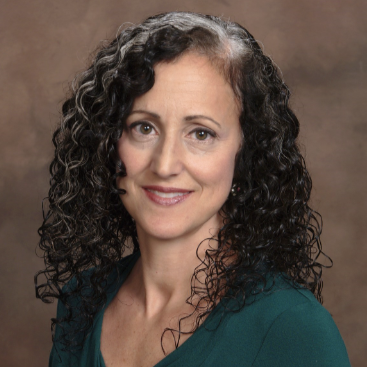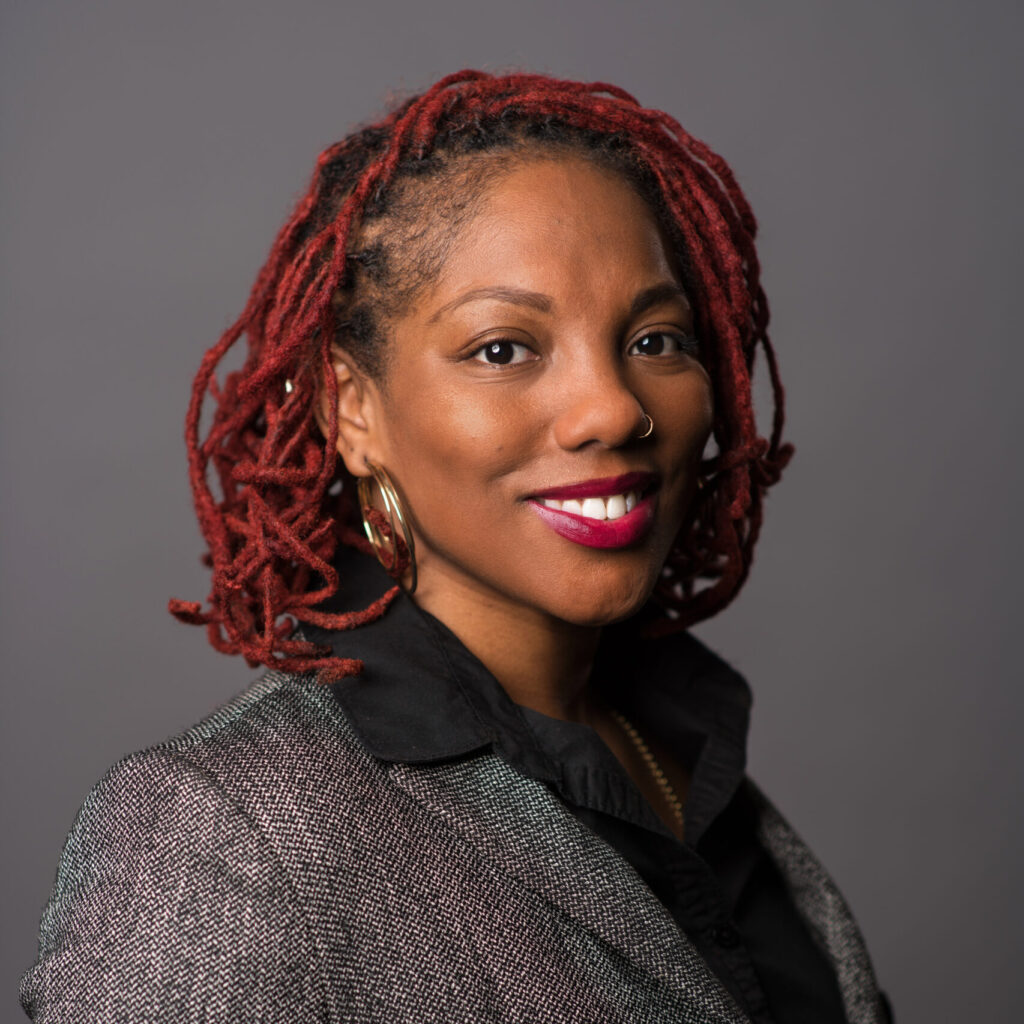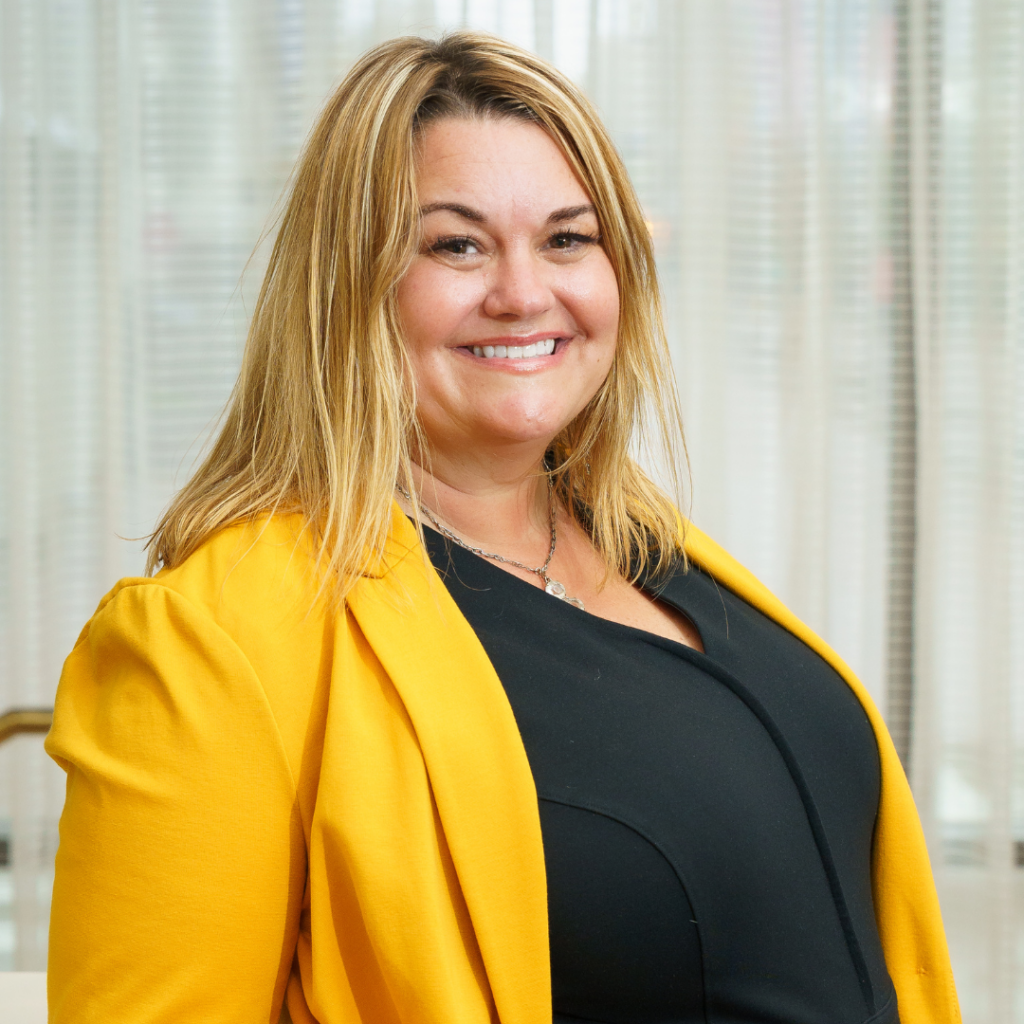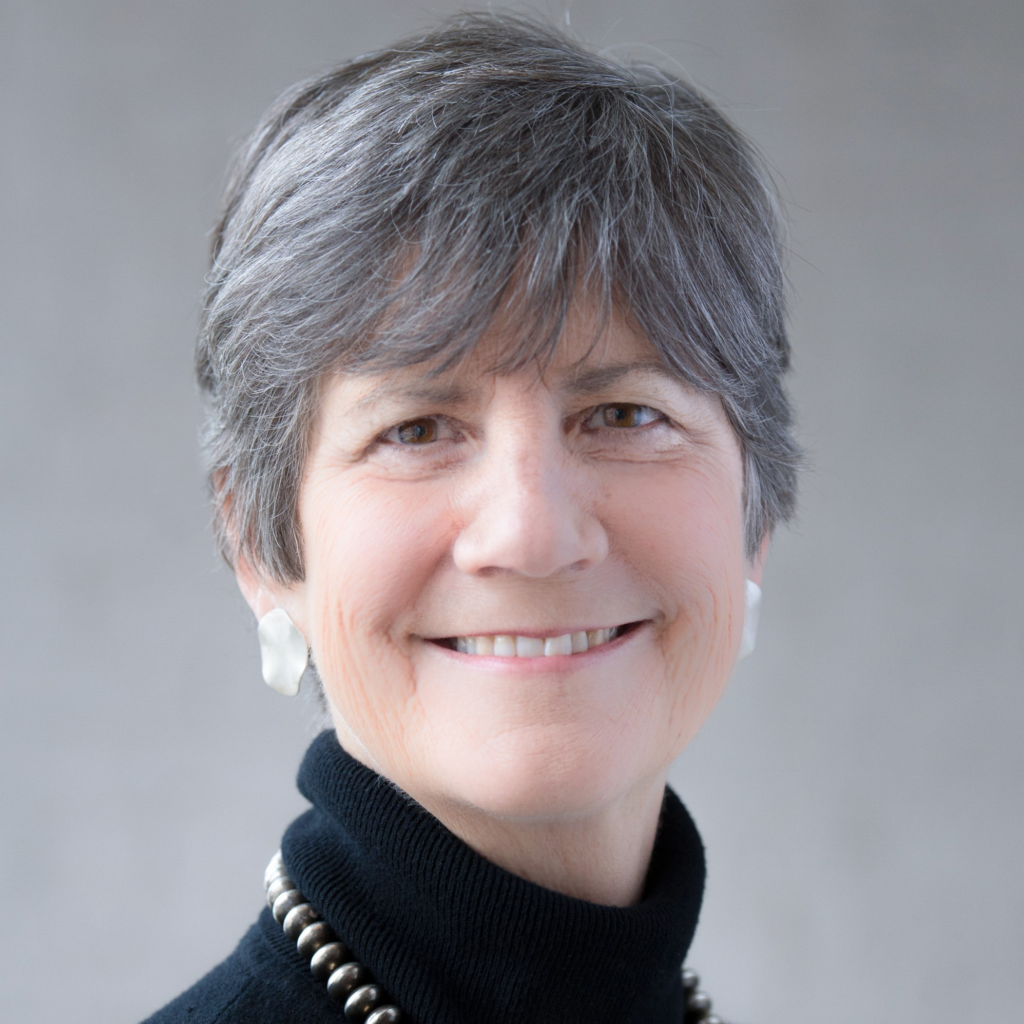WOMEN'S JUSTICE COMMISSION EXPERT ADVISERS

Alyssa Benedict
Benedict is a psychologist and public health practitioner with a subspecialty in the neurophysiology and ecology of trauma and resilience. The executive director of CORE Associates, she has spent over two decades supporting system and agency level healing, growth, and transformation by promoting evidence-based and innovative approaches with women and girls, amplifying lived experience, and ensuring inclusivity and intersectionality. Benedict has worked across the U.S. to promote gender responsive, culturally attuned and trauma-informed care and has served as an architect and core faculty for various national initiatives. She is co-founder, with Deanne Benos, of The Women’s Justice Institute (WJI), a Chicago-based, national “think and do tank” building transformational justice across sectors with and for system-impacted women with the goal of ending women’s mass incarceration. She and Benos are co-authors of WJI’s groundbreaking report on ending women’s mass incarceration, “Redefining the Narrative,” and together created the Women’s Justice Pathways Model (WJP), the Gender Responsive Justice Continuum (GRJC) and the Women’s Justice Assessment (WJA).
Benedict has also authored and co-authored other publications, models, and impactful staff training curricula, including the nation’s first guide on discipline in women’s correctional facilities, the Gender Informed Practices Assessment (GIPA), the Gender Responsive Policy and Practice Assessment-Community Version (GRPPA-CV), and the widely implemented trauma-informed staff communication model Creating Regulation and Resilience (CR/2™). Her work with CORE and the WJI informs state, national, and international efforts to improve justice and behavioral health for and with women and communities, and her collaborative scholarship and cutting-edge models have been featured at various conferences, including those convened by the American Correctional Association, American Jails Association, American Probation and Parole Association, Association of Justice Involved Females and Organizations, International Community Justice Association, and International Corrections and Prisons Association.

Deanne Benos
Benos is co-founder, with Alyssa Benedict, and director of The Women’s Justice Institute, a national “think and do tank” building transformational justice across sectors with and for system-impacted women with the goal of ending women’s mass incarceration. She and Benedict are co-authors of WJI’s groundbreaking report on ending women’s mass incarceration, “Redefining the Narrative,” and together created the Women’s Justice Pathways Model (WJP), the Gender Responsive Justice Continuum (GRJC) and the Women’s Justice Assessment (WJA). Benos was the first woman appointed assistant director of the Illinois Department of Corrections, where she championed nationally recognized prison and parole reform initiatives to promote decarceration and justice reinvestment through reduced recidivism and improved outcomes for system-impacted individuals. During her tenure, she led several key initiatives, including “Moms & Babies,” which was one of the nation’s first prison nurseries designed to protect mother-child bonding (for those ineligible to be released into the community prior to childbirth) and touted a nearly zero percent recidivism rate on its 10th anniversary. She also led the statewide rollout of trauma-informed programming throughout women’s prisons, a major parole reform initiative that lowered recidivism among women and men, the design and launch of eight community reentry centers, and the design and implementation of the Sheridan Drug Treatment Prison & Reentry Program, a national model that dramatically increased investments into community-based treatment, housing, and employment programs.
Earlier in her career, Benos served as an associate director for crime and gun safety on the White House Domestic Policy Council under President Bill Clinton, and as executive director of Test400K, a global organization dedicated to ending the backlog of untested sexual assault kits. She is co-chair of the American Probation & Parole Association, Justice-Involved Women & Girls Committee, and was a participant in the 2023 National Institute of Corrections (NIC) Gender Responsive Summit. Benos has also been engaged in global efforts as a member of the New York Vance Center for International Justice Women’s Prison Project, as an advocate for the successful passage of the United Nation’s Bangkok Rules for Women Prisoners, and as a member of the International Corrections & Prisons Association. Benos spearheaded passage of the Women’s Correctional Services Act, one of the nation’s most comprehensive state laws requiring gender responsive, trauma-informed practices across a state women’s prison and parole system.

Janaé Bonsu-Love
Bonsu-Love is a licensed master social worker and researcher with extensive experience designing, implementing, analyzing, and sharing research on issues spanning the criminal and juvenile legal systems. She has over a decade of research and advocacy experience, with particular interest and expertise in the intersections of race, gender, policing, reentry, and gender-based violence. Bonsu-Love is passionate about providing strategic research support for grassroots organizing campaigns concerned with gendered and racialized criminalization. She has authored and co-authored numerous technical reports, peer-reviewed journal articles, and book chapters and currently has a book, Imperial Policing: Weaponized Data in Carceral Chicago, in press. She earned a Ph.D. in social work from the University of Illinois-Chicago; a master’s degree in social work, policy, and administration from the University of Chicago; and a bachelor’s degree in experimental psychology and criminal justice from the University of South Carolina.
She is currently the director of research at the Building Movement Project, a group that empowers and advises nonprofits. Before this role, she served as the director of research and advocacy at the National Black Women’s Justice Institute, a national nonprofit leading research, policy advocacy, and capacity building in partnership with directly impacted Black women and girls to identify and elevate new models of safety, prevention, and justice.

Marium Durrani
Durrani is chief of staff at Civil Rights Corps. Previously, she served as vice president of policy at the National Domestic Violence Hotline. She has a background working with survivors of domestic violence, with a focus on immigrant and faith-based communities, and limited English speakers. Durrani’s experience includes working as policy director for the National Resource Center on Domestic Violence, senior policy attorney at the National Network to End Domestic Violence, and as a legal fellow at the Virginia Poverty Law Center. She has litigated family law and protective order cases in both Washington, D.C., and Northern Virginia and worked as a legal assistance for victims attorney. She has also worked for the U.S. House Judiciary Committee and is a certified mediator. She is a graduate of the University of Richmond School of Law and barred to practice in Virginia.

Erica King
King is a senior manager at the Center for Effective Public Policy (CEPP), where she directs gender justice initiatives that are part of CEPP’s National Resource Center on Justice-Involved Women. King focuses on addressing the unique needs of impacted women across the justice system, including pretrial justice, sentencing, corrections, and community supervision. She delivers technical assistance to jurisdictions and agencies with a focus on evidence-based, gender-responsive approaches and creates resources to help the field better understand the implications for women who intersect with the criminal justice system. Prior to joining CEPP, King worked for two decades as a senior policy associate at Muskie School of Public Service, directing a results-focused portfolio aimed at improving the opportunity landscape for emerging adults. She is an alumnus of the Applied Leadership Network of the Annie E. Casey Foundation, a member of the international Motivational Interviewing Network of Trainers, and an adjunct faculty at Colby College. She has coauthored policy briefs, evaluations, and interventions aimed at creating whole people and communities. King has a master’s degree in social work from University of Southern Maine and serves as a policy leader across hyper-local and national initiatives.

Anadora (Andie) Moss
Moss is the founder and CEO of The Moss Group, Inc., a Washington, D.C- based criminal justice consulting firm. Moss started the firm more than two decades ago after working extensively in local, state, and national corrections. Earlier in her career, Moss worked for the Georgia Department of Corrections and at the U.S. Department of Justice, National Institute of Corrections (NIC). Both in Georgia and at NIC, Moss was instrumental in advancing work focused on justice-involved women. Her leadership roles have allowed her to engage in policy and practice across the corrections field, with an emphasis on creating hope-based cultures of safety, pragmatic gender-informed operational practice, and research-based models of care.
Moss has published in professional publications, written and co-authored in criminal justice textbooks, and held leadership positions in professional organizations. She has been recognized as a pioneer in assessing facility culture, expertise that has shaped her approach to addressing custodial sexual abuse. Moss has served as an expert for the U.S. Bureau of Justice Statistics, the National Prison Rape Elimination Commission, the federal Bureau of Prisons, and the U.S. Department of Homeland Security. The work of the Moss Group has reached every state and has included several international projects. Moss’ recognition by professional organizations and her peers includes the NIC Executive Director’s Award, the Association of Women Executives in Corrections Susan M. Hunter Award and Legacy Award, the American Correctional Association 2022 E.R. Cass Correctional Achievement Award, and the American Jail Association 2022 Francis R. “Dick” Ford Distinguished Service Award. Moss received her bachelor’s degree from the University of Georgia and her master’s in education from the University of Idaho.
